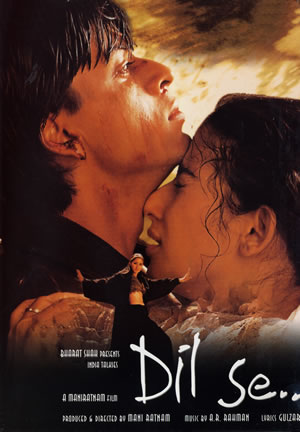Vaishnav jan to tene kahiye je
[One who is a vaishnav]
PeeD paraayi jaane re
[Knows the pain of others]
Par-dukhkhe upkaar kare toye
[Does good to others, esp. to those ones who are in misery]
Man abhimaan na aane re
[Does not let pride enter his mind]

As we recite this favorite bhajan of our very own Mahatma, we recall one more significant day of international significance, his very own birthday. He’s immersed in our thoughts. 140 years since his birth, his universal methods continue to inspire many. His non violent principles coupled with the ferocity of Bhagat Singh,Lal Bahadur Shastri( who shares his birthday too on the very same day) emancipated the British that let India breathe a new slice of relief, a renewed sense of excitement and a splendid feeling of belongingness to the country. His life was basically a delicate but a principled one resting on the foundations of truth. Since his death, many writers, filmmakers have weaved wonderful tales of this master. These have been mild efforts in trying to emulate his methods to the younger generation. Here’s a tribute to Mahatma Gandhi through a rollicking literary gem “Waiting for the Mahatma” by R.K. Narayan.The best part of the fictional classic is that it involves a fictional character of the Mahatma himself who enthuses a young teenager Sriram who’s coming of age is marvellously reflected and equally fascinated by the legend’s simplicity. Embellished with a beautiful story that’s cultivated between the main protagonist Sriram and Bharati, both strict followers of the former.In pursuit of his love interest, Sriram discovers the purpose of life through the depth of his principles. He loves the freedom enriched in his soul and though he is in a personal conflict on the practicality he lets life find its destination. Its the nativity and connectivity established by the author between the reader and Mahatma that works so very well.
Akin to R.K. Narayan, his autobiography “The Story of My Experiments withTruth” mirrors his life through subtle and unadorned descriptions of his daily life, the situations he encountered through simple words that harbour great thoughts. It was the inner meanings of the smaller aspects he viewed that taught him a lot and live an uncompromising existence.
To take light of another work that fructifies Gandhigiri, here’s our very own Munnabhai. Introducing a character created by chemical imbalance of a person, the filmjourneys the practical application of his methods and preaching of his sayings that's viable for the aam junta. Without a speckle of violence substantiated with logic, Munnabhai renewed the vigour of ahimsa. Its a craft of a narrator to create such a plot that humourously yet convincing a viewer of its astuteness.
Ben Kingsley’s Gandhi too invoked a great sense of nationalism and its successglobally justifies this aspect. Despite varied attempts, the audiences have accepted Gandhian notions in diverse forms. Sadly, very few have embedded in our hearts to create a long time impact. Despite a mixed run in this case, its very appreciable from their side for the efforts undertaken in engendering his message conjugated with their very own creativity.
Though Gandhi has an equal share of critics for his methods and though various questions were bottled up regarding his character, one cannot disregard his honest will to visualize a battle free nation. When we accept or adore a person, we equally respect both the sides of their lives. We praise, criticize, applaud him but he would be the happiest when he sees us improving our nation in own little ways. Trust yourselves and be an ambassador for disseminating truth, that would be beneficial enough for a developing nation like ours. As Gandhi quotes in “Lage Raho Munna Bhai”“Apun Hai na, Tension nahi lene ka”Jai Hind!Hope my article justifies an unending tribute to the Mahatma….

 early days into cinema suggests him to use his image to enter into politics.There starts an ugly game of politics and the difficulties Mohan Lal undergoes in his career.Aishwarya playing a double role fits in comfortably in a somewhat brief role.Her part in the second half suggested similarities with the relationship Jayalalitha shared with MGR.Partly fictional,partly factual the movie is a treatise on power,money,popularity,fame,lust and almost human emotion.A.R.Rahman’s music provides the perfect impetus to a story that penetrates into you.His background music speaks volumes on how he grew and still grows Mani Ratnam himself considers this movie as his best work till date.I’ve watched many politics centric movies but none have created an impact such as this.Its a must watch to know how powerful can a character get more than you see.Feel it!
early days into cinema suggests him to use his image to enter into politics.There starts an ugly game of politics and the difficulties Mohan Lal undergoes in his career.Aishwarya playing a double role fits in comfortably in a somewhat brief role.Her part in the second half suggested similarities with the relationship Jayalalitha shared with MGR.Partly fictional,partly factual the movie is a treatise on power,money,popularity,fame,lust and almost human emotion.A.R.Rahman’s music provides the perfect impetus to a story that penetrates into you.His background music speaks volumes on how he grew and still grows Mani Ratnam himself considers this movie as his best work till date.I’ve watched many politics centric movies but none have created an impact such as this.Its a must watch to know how powerful can a character get more than you see.Feel it! The characters were straight and had clear intentions.Shahrukh a radio jockey,Manisha Koirala a terrorist.Love creates a bond of immense passion,love between them.This one goes straight into the topic on how people resort to the ghastly activities of terrorism and the mindset behind it.No,this one does not fantasize it but states a clear message.Love too crushes apart as a prey.The film has a tragic end quite contrary to the commercial films of that genre.Probably this is why this film has stood stall thus ensuring it a timeless quality.Mani Ratnam in his movie makes sure that the viewer gets enough of the local lingo making it look all the more natural.He sinks us in the world that we would refuse to move out from.He always has good eye for casting and having the right people at his disposal.This comes to fact yet again with this one.Music of Dil Se has stood the test of time and the classy “Chaiyya Chaiyya”,the passionate “Satrangi re”,the effervescent “Jiya Jale” will fascinate any music lover.Its one of the best tales narrated where a woman is caught between the devil and the sea and can do nothing about it.Other filmmakers should take a leaf out of his book and go into making good cinema rather than falling into the trap of the run of the mill commercial formulaic movies.
The characters were straight and had clear intentions.Shahrukh a radio jockey,Manisha Koirala a terrorist.Love creates a bond of immense passion,love between them.This one goes straight into the topic on how people resort to the ghastly activities of terrorism and the mindset behind it.No,this one does not fantasize it but states a clear message.Love too crushes apart as a prey.The film has a tragic end quite contrary to the commercial films of that genre.Probably this is why this film has stood stall thus ensuring it a timeless quality.Mani Ratnam in his movie makes sure that the viewer gets enough of the local lingo making it look all the more natural.He sinks us in the world that we would refuse to move out from.He always has good eye for casting and having the right people at his disposal.This comes to fact yet again with this one.Music of Dil Se has stood the test of time and the classy “Chaiyya Chaiyya”,the passionate “Satrangi re”,the effervescent “Jiya Jale” will fascinate any music lover.Its one of the best tales narrated where a woman is caught between the devil and the sea and can do nothing about it.Other filmmakers should take a leaf out of his book and go into making good cinema rather than falling into the trap of the run of the mill commercial formulaic movies.











.jpg)























